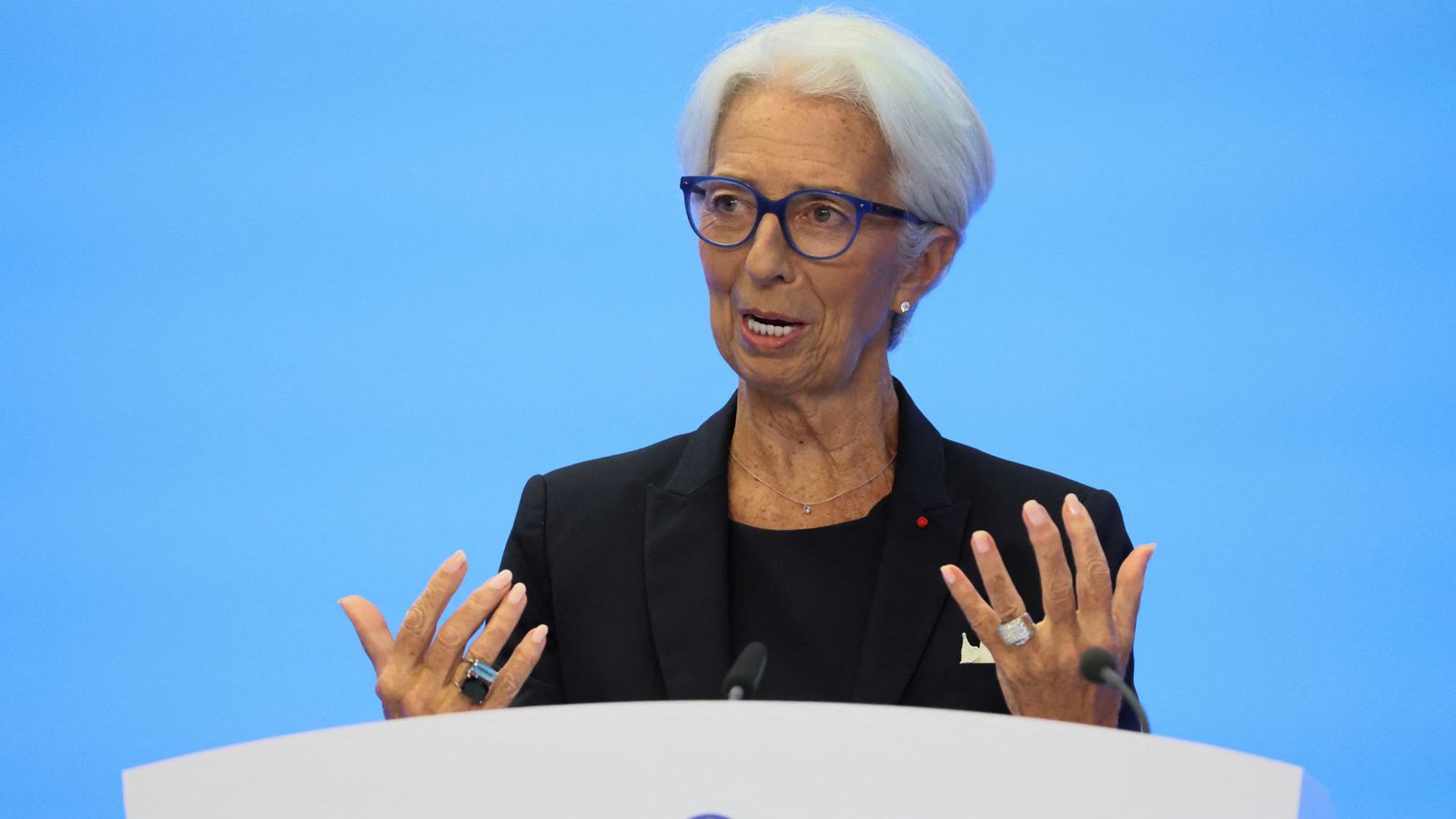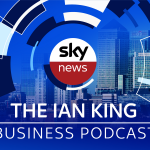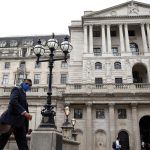The European Central Bank (ECB) has raised interest rates again to maintain its battle against inflation but eased the pace of increase.
The main policy rate was hiked by 0.25 percentage points to 3.25% by the euro area central bank’s governing council, making borrowing more expensive.
It followed a similar increase from the US Federal Reserve on Wednesday night despite the well-documented banking industry crisis, which is linked to rising interest rates, in the world’s largest economy.
Central banks have been raising interest rates in an effort to bring down inflation which has soared following the invasion of Ukraine and the supply chain difficulties associated with COVID-19 lockdowns.
Inflation stood at 7% in the 20 countries using the euro, more than triple the ECB’s 2% target rate of inflation.
Thursday’s rate rise was less than previous increases and represents a slowing in the central bank’s programme of hikes.
Be the first to get Breaking News
Install the Sky News app for free
Higher interest rates have lead to higher profits for lenders but have also put pressure on banks as some government bonds – money lent by investors to a state – lose value.
While there are fewer worries about the health of the European banking system, the US has experienced the worst banking turmoil since the global financial crash.
A number of midsize banks, including Silicon Valley Bank, Signature Bank and, most recently, First Republic, have collapsed and been taken over.






















